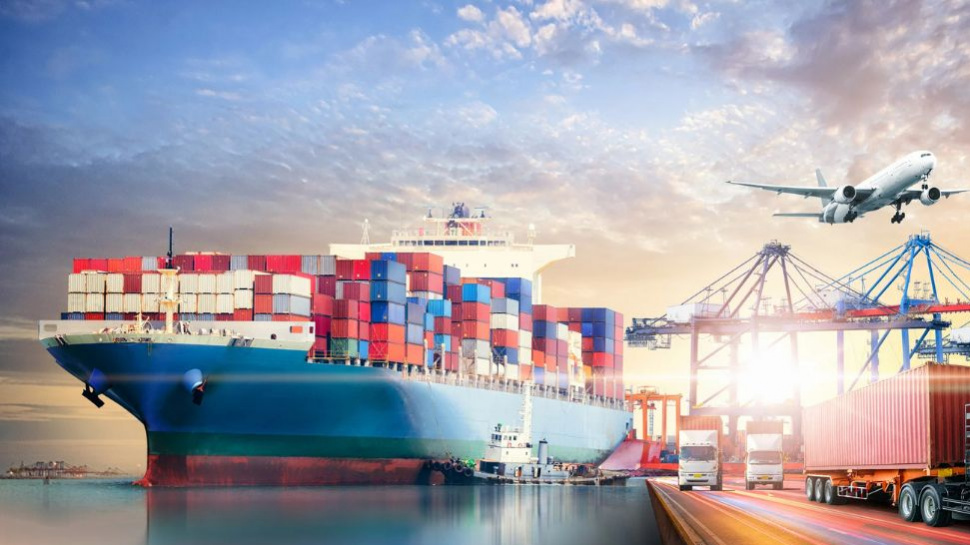Freight is at the core of the global supply chain. It represents the movement of goods across various transportation networks, facilitating trade and commerce on a global scale. Whether it's raw materials for manufacturing or finished products for consumers, freight ensures that goods reach their intended destinations. As the world continues to embrace e-commerce, the demand for efficient and cost-effective freight services is higher than ever. In this blog, we will explore the different types of freight, the role of trucking companies in freight transportation, and the essential differences between 3PL and 4PL logistics providers.
Understanding Freight and Its Role in the Supply Chain
Freight refers to the transportation of goods by various means—land, sea, or air. It is a crucial component of the logistics and supply chain management industries. Freight can encompass a wide range of items, from bulk commodities like grains and coal to consumer goods like electronics and clothing. Freight management involves planning, organizing, and executing the movement of these goods, ensuring timely delivery and cost-efficiency.
The primary objective of freight services is to make goods available to consumers and businesses in the most efficient manner possible. Freight transportation plays an essential role in ensuring that products are delivered to their destinations on time, while also minimizing costs for businesses. It helps bridge gaps between suppliers, manufacturers, retailers, and customers, ensuring smooth trade flows across different regions.
Types of Freight and Their Transportation Methods
Freight can be broadly categorized into several types, each requiring a different transportation method based on its nature, size, and destination. Understanding the different types of freight is crucial for companies in the logistics industry to provide the right solutions for their customers.
Full Truckload (FTL) Freight
Full Truckload freight refers to the transportation of goods that fill an entire truck or container. FTL is often used for large shipments or when a company requires exclusive use of the truck for their goods. This type of freight is cost-effective for businesses that need to move large quantities of goods across long distances.
Less Than Truckload (LTL) Freight
Less Than Truckload freight refers to shipments that are not large enough to fill an entire truck. In LTL shipping, multiple shipments from different customers are combined in a single truck. This method is ideal for businesses with smaller shipments and offers a more affordable way to transport goods, as customers share the cost of transportation.
Air Freight
Air freight is used to transport goods quickly over long distances, typically by cargo planes. It is an expensive option compared to other methods of freight, but it is the fastest. Air freight is often used for high-value, time-sensitive shipments such as electronics, medical supplies, and perishable goods.
Sea Freight
Sea freight, or ocean freight, is one of the most common methods for transporting large volumes of goods internationally. It is ideal for bulk shipments, and though it takes longer than air freight, it is far more cost-effective for large, heavy loads. Sea freight is commonly used for trade between continents and across countries with access to seaports.
Rail Freight
Rail freight involves the transportation of goods by trains. This method is often used for heavy or bulk items that need to travel long distances over land. Rail freight is generally more affordable than trucking and is ideal for transporting goods across large landmasses, particularly in regions with established rail networks.
The Role of Trucking Companies in Freight Transportation
Trucking companies play a vital role in the movement of freight. Trucks are used for both local and long-distance transportation, making trucking one of the most versatile and widely used methods of freight transportation. Trucking companies provide essential services for businesses that need to move goods quickly and efficiently across various regions.
One of the main advantages of trucking is its flexibility. Unlike other modes of transportation, trucks can go directly to the source or destination, cutting out the need for transshipment. This is especially useful for last-mile deliveries, where goods need to be delivered directly to consumers or retailers.
Choosing the Best Trucking Company
When it comes to freight, choosing the best trucking company is essential for ensuring that goods are transported efficiently, safely, and on time. The best companies offer a variety of services, including on-time delivery, competitive pricing, and a strong focus on safety. Companies like Warrior Logistics are known for their commitment to quality service and customer satisfaction, offering tailored solutions for businesses looking to move freight quickly and reliably.
3PL vs 4PL: Understanding the Differences
Logistics providers often offer services categorized as either 3PL or 4PL. While both play important roles in freight management, they differ in the scope and level of service they provide.
3PL (Third-Party Logistics)
A 3PL provider handles specific aspects of logistics for a business, such as warehousing, transportation, and freight management. Companies that use a 3PL typically outsource individual logistics functions like inventory management or shipping. 3PL providers are responsible for moving goods from point A to point B, but they do not oversee the entire supply chain process.
4PL (Fourth-Party Logistics)
A 4PL provider takes a more strategic and comprehensive approach. In addition to providing logistics services, a 4PL manages the entire supply chain for a company. A 4PL coordinates various 3PLs and other service providers, optimizing the flow of goods and information across the entire supply chain. This holistic approach allows companies to focus on their core competencies while relying on the 4PL to handle the complexity of logistics management.
Both 3PL and 4PL providers offer unique benefits depending on the needs of the business, with 4PL offering a more integrated and management-focused service.
Conclusion
Freight is a vital part of the logistics industry, ensuring that goods reach their destinations in a timely and cost-effective manner. Whether through trucking, air, sea, or rail, the movement of goods is essential to global commerce. By understanding the different types of freight and how trucking companies contribute to the supply chain, businesses can make more informed decisions when it comes to their transportation needs. As logistics continues to evolve, so too does the role of freight in shaping the future of global trade.
FAQ
1. What are the main types of freight?
The main types of freight include Full Truckload (FTL), Less Than Truckload (LTL), air freight, sea freight, and rail freight. Each type is suited to different kinds of shipments based on their size, destination, and urgency.
2. How do trucking companies contribute to freight transportation?
Trucking companies provide essential services for moving goods over land, offering flexibility and reliability for businesses. They are responsible for transporting goods to various destinations, often handling last-mile deliveries directly to consumers.
3. What is the difference between 3PL and 4PL logistics providers?
A 3PL provider manages specific logistics functions like warehousing and transportation, while a 4PL provider manages the entire supply chain process, coordinating various 3PLs and other service providers to ensure efficiency.
4. How can I choose the best trucking company?
The best trucking companies offer reliable, cost-effective services, a commitment to safety, and on-time delivery. It’s essential to choose a company that can meet your specific transportation needs and provide tailored solutions for your business.
5. What factors affect the cost of freight transportation?
The cost of freight transportation is influenced by factors such as the type of freight, the mode of transportation, distance, delivery time, and the size or weight of the goods being transported.




Share the News